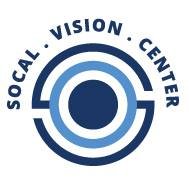
Cataract Treatment Serving Burbank California
The Best Eye Health, Cataract & Vision Treatments in Southern California
We know how challenging living with cataracts can be. We successfully treat cataracts for our Burbank patients and guide them on their healing journey. Please make an appointment today to learn more about how we can help you or your loved ones.
Why Choose SoCal Vision Center?
✓ Experienced & Board Certified
✓ Knowledgeable & Compassionate Care
✓ Successful Treatments
★★★★★
Schedule an Appointment Today
Cataracts – Burbank
A clear, transparent lens helps the eye focus light onto the retina so the eye can see clearly. With time, the lens becomes cloudy and loses some of its transparency. This is called a cataract. With a cataract, the eye cannot see clearly because the light must first pass through the cloud in order to reach the retina. This causes blurred vision.
Symptoms
Cataracts typically develop slowly, with loss of vision occurring gradually. At first, cataract symptoms are mild. Over time, however, the symptoms can include blurry vision, glare from headlights, double vision, halos around lights, and impaired ability to drive at night. Some people notice that they need an increasingly stronger light in order to read, even if they’re wearing reading glasses. If you notice any of these symptoms, it may be time to visit the eye doctor. Our vision center offers the Burbank area eye care and cataract treatment for patients with cataracts, and we provide monofocal & multifocal lens options during surgical procedures.
Causes and Risk Factors
Cataracts mostly come about because of natural aging of the lens. Excessive sun or ultraviolet exposure, however, can hasten the process. Cigarette smoking may increase your cataract risk. The chances for developing cataracts may also be increased if you are on certain medications, have had trauma to the eye, or have other illnesses like diabetes. If you or someone you know may have cataracts contact our SoCal Vision center to learn more about eye care and cataract treatment options in Burbank.
How Are Cataracts Detected?
A complete eye exam at our Burbank vision center will determine whether you need eye care and Cataract treatment. Sometimes, simply changing your glasses will be enough to temporarily improve your vision, but if cataracts become severe enough, it will not help. At that point, treatment involves surgically removing the afflicted lens and replacing it with an artificial one.
What is cataract surgery?
Thanks to modern surgery techniques, removing cataracts today is very safe and effective. The surgery is completed by making an incision that measures only a few millimeters. Through this tiny incision, a small instrument is inserted that breaks the cataract into tiny pieces. Advantages to this technique include a faster recovery time, reduced need for glasses post-surgery, and a lower risk of post-surgery infections. This type of surgery also does not require any stitches. Our vision center in Burbank offers eye exams and care to determine whether cataract surgery is necessary.
Lens options: What type of lens implants should you opt for?
Cataract surgery removes the cloudy lens of your eye and replaces it with a clear, artificial lens implant. Today, patients have two options for implants: a monofocal lens for seeing at one distance only, or a multifocal lens (also called a premium lens) that allows you to see at near, far, and intermediate distances. During your cataract examination, we will help you determine which type of lens implant would work best for your vision. We offer several premium lens implants, including the PanOptix lens, the Acrysof Restor, and the Tecnis Multifocal IOL. Thanks to these modern, multifocal lenses, you can now decide what type of vision you want after cataract surgery.
Contact Socal Vision Center
If you have any questions about our Burbank eye exams, care treatments, cataracts, or the lens options discussed above, please click here or call our office at 818-409-1777 to schedule your cataract surgery consultation with our eye surgeon.




